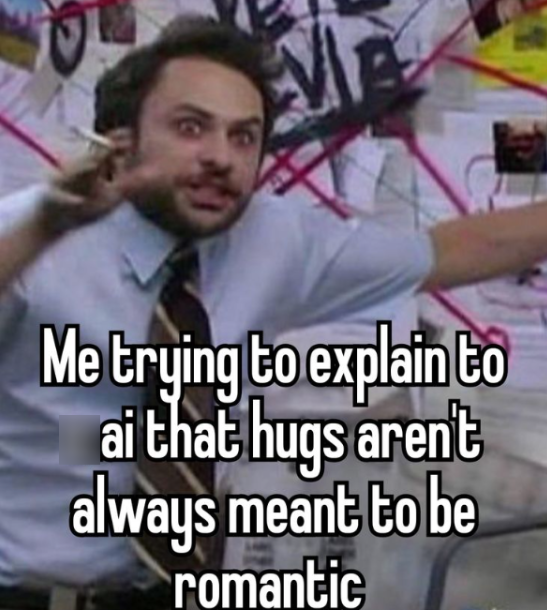Artificial intelligence is rapidly transforming the workplace, with experts predicting significant changes in 20 jobs AI will replace by 2030.
According to recent Goldman Sachs studies, AI could affect up to 300 million full-time jobs globally, with some roles facing complete automation.
The impact varies across industries, with some sectors experiencing more immediate disruption than others. Let’s examine them in detail one by one.
Note: Alongside information and research, to test the assumption that “AI will replace all human jobs,” I will try to replace my designer’s role with AI-generated images in this article. Can AI truly match human creativity? Let us find out!
What Kind Of Jobs Will AI Replace?
AI primarily targets roles involving repetitive tasks, data processing, and routine decision-making. Here are a few of them:
| Job Category | Examples of Jobs AI May Replace |
|---|---|
| Administrative Work | Data Entry Clerks, Receptionists, Virtual Assistants |
| Retail & Sales | Cashiers, Telemarketers |
| Manufacturing | Assembly Line Workers, Quality Inspectors |
| Transportation | Truck Drivers, Delivery Couriers |
| Customer Service | Call Center Agents, Help Desk Support |
| Finance & Accounting | Bookkeepers, Tax Preparers |
| Media & Content | Proofreaders, Basic Content Writers |
| Healthcare Support | Medical Transcriptionists, Radiologists |
From this table, you can deduce that jobs requiring minimal human creativity, emotional intelligence, or complex problem-solving are most vulnerable to automation through artificial intelligence systems.
Will AI Replace Jobs In Data & Information Processing Roles?
Automated systems have replaced data entry clerks, AI virtual receptionists manage calls and appointments, and AI platforms oversee schedules and emails, surpassing virtual assistants. Here’s why:
1. Data Entry Clerks
With a 95% likelihood of automation, data entry clerks face the highest risk of AI replacement. AI systems can process, validate, and enter data faster and more accurately than humans, working 24/7 without errors or fatigue.

2. Bookkeepers
AI bookkeeping software already handles complex financial records, making them 94% at imminent risk. These systems can automatically categorize transactions, reconcile accounts, and generate real-time financial reports, making traditional bookkeeping roles increasingly obsolete.
3. Market Research Analysts
While not completely replaceable, market research analysts face a potential disruption risk of 48% as AI tools can now analyze vast amounts of consumer data, identify patterns, and automatically generate insights.
What Jobs Will AI Replace By 2030? Customer Service & Sales
Customer service is undergoing rapid transformation, and here are the jobs that will get replaced:

4. Telemarketers
AI-powered calling systems can handle multiple conversations simultaneously, adapt to customer responses, and maintain consistent performance around the clock. Telemarketers face an imminent risk of being replaced by AI by 94%.
5. Basic Customer Service Representatives
Chatbots and virtual assistants are becoming increasingly sophisticated, putting Customer Service Representatives’ jobs at 80% risk, handling routine inquiries, troubleshooting, and customer support tasks with growing efficiency.
6. Retail cashiers
Self-checkout systems and automated payment technologies are rapidly replacing traditional cashier roles, with some stores already operating entirely cashierless. Putting these jobs at 90% risk.
Jobs AI Will Replace In Administrative Roles
The administrative sector faces significant disruption from AI automation. Let us look at the job roles that are under threat due to AI:
7. Receptionists
Virtual reception systems are becoming mainstream, putting receptionists at 92% risk. These AI systems handle visitor check-ins, scheduling, and basic inquiries. They can manage multiple tasks simultaneously and provide 24/7 coverage.
8. Appointment Schedulers
AI scheduling tools can now coordinate complex calendars, send reminders, and handle rescheduling automatically, making traditional scheduling roles redundant.
9. Basic Clerical Positions & Library Assistants
Automated systems are taking over routine paperwork, filing, and basic office administration tasks more efficiently and accurately. Even a librarian’s job is under threat at 68% risk.
Jobs That Will Be Replaced By AI Retail & Sales
In retail and sales, automation is already visible. Let’s see their effect on this field:

10. Cashiers
Contemporary retail integrates cashierless technology and self-service checkouts, placing these jobs at a 90% risk. Amazon’s Just Walk Out technology illustrates how AI can remove conventional checkout methods entirely.
11. Telemarketers
Advanced AI calling systems can conduct personalized conversations, track responses, and adjust scripts in real time, making human telemarketers increasingly unnecessary. The risk of AI replacing telemarketers is calculated at 94%.
Manufacturing Jobs AI Will Replace
Many manufacturing companies are turning to AI for repetitive tasks. But don’t worry—while AI can outplay humans in chess, it still can’t master folding laundry. Ironically, the same technology that can drive a truck still struggles to differentiate between a pair of socks.

12. Assembly Line Workers
Robotic systems are becoming more versatile and intelligent, capable of handling complex assembly tasks more precisely and consistently than human workers.
13. Quality Inspectors
AI-powered visual inspection systems can detect defects with microscopic accuracy, processing thousands of items per minute without fatigue. This puts the jobs of inspectors, testers, sorters, samplers, and weighers at 76% risk.
Healthcare Support Jobs That Will Get Replaced By AI
AI is rapidly transforming healthcare support roles, streamlining processes, and improving efficiency.
14. Medical Transcriptionists
Natural language processing and speech recognition technology can now transcribe medical dictation with over 95% accuracy, instantly converting doctor’s notes and patient records. AI puts the job of a medical transcriptionist at an 88% risk.
15. Radiologists
AI imaging systems can accurately analyze medical scans, detecting patterns and abnormalities that human eyes might miss. This threatens the job of a human radiologist by 41%.
How Many Jobs Will AI Replace By 2050?
AI is advancing rapidly, automating tasks in these fields. From diagnostics to bookkeeping, many traditional roles face increasing replacement risks by 2050. Let us take a look at these jobs:
16. Truck Drivers
Autonomous vehicle technology is advancing rapidly, putting manual driving jobs at risk of 68% to 76%, with major companies already testing self-driving trucks for long-haul routes. Complete automation of trucking could displace millions of drivers.
17. Delivery Couriers
Drone delivery systems and autonomous robots are becoming increasingly common for last-mile delivery, particularly in urban areas, putting these jobs at 83% risk.
Will AI Replace Accountants, Finance & Accounting

18. Tax Preparers
Advanced AI systems can process tax returns, apply current regulations, and identify deductions with greater accuracy than human preparers. This AI tech will likely take over tax preparation with an 86% threat.
How Many Jobs Will AI Replace By 2050 In Media & Content?
AI is reshaping finance, accounting, and content creation, automating tasks once handled by professionals.
19. Proofreaders
AI grammar and style-checking tools have become sophisticated enough to catch errors and suggest improvements with high accuracy, risking 86% of the jobs of proofreaders and copy markers.
20. Basic Content Writers
AI writing tools can now generate standard articles, product descriptions, and reports but struggle with complex creative writing. AI is likely to take over the job of a content writer or author, putting these jobs at a 54% risk.
Note: Jobs AI will replace calculated from Will Robots Take My Job?
Understanding AI’s Impact On Employment
Recent data suggests that by 2030, AI may impact around 300 million full-time jobs, roughly 14% of the workforce worldwide. (Source- Goldman Sachs)
Experts predict a gradual transition, starting with the automation of routine tasks. By 2025, 85 million jobs might be lost, but 97 million new AI-related positions could be created.
Key factors making jobs vulnerable to AI replacement include:
- Repetitive nature of tasks
- Predictable work patterns
- Data-driven decision making
- Limited need for human creativity
- Minimal requirement for emotional intelligence
Partial AI Replacement: Jobs Being Transformed
Roles where AI will handle specific tasks but not replace humans entirely include:
- Legal Professionals
- Healthcare Providers
- Financial Advisors.
These positions require human judgment alongside AI assistance.
Traditional roles evolve through AI integration, with professionals becoming AI supervisors and specialists. For example, accountants are shifting from number crunching to strategic financial planning.
Successful human-AI collaboration examples include:
- Doctors using AI for diagnosis while providing patient care
- Teachers utilize AI for grading while focusing on personalized instruction.
- Lawyers employing AI for research while handling complex negotiations
Preparing For The AI Transition
Adaptability and continuous learning are the keys to surviving the AI revolution. Professionals must focus on developing uniquely human skills while learning to work alongside AI systems.

Here is how you can start preparing for the AI transition in 2 ways:
1. Skills Development
AI can’t replace essential human skills, such as emotional intelligence, creativity, critical thinking, and leadership. These underpin future-proof careers.
Technical skills to work with AI include programming, data analysis, and system management.
Mastering AI tools boosts professional value. Continuous learning involves updating skills through online courses, certifications, and hands-on experience with new technologies.
2. Career Planning
Assessing your job’s AI risk involves evaluating the percentage of routine tasks in your role and the availability of AI solutions in your field.
Steps to transition to AI-resistant roles include:
- Identifying growth areas in your industry
- Developing complementary skills
- Building expertise in human-centric aspects of your profession
- Networking with professionals in AI-resistant fields
Opportunities in emerging AI-related fields, such as AI trainers, AI ethics officers, and human-AI collaboration specialists, offer promising career paths.
Jobs That AI Can’t Replace
Positions that need strong emotional intelligence, intricate decision-making, and innovative problem-solving are safe from AI replacement. These roles rely on distinctly human attributes.

Here are my deductions based on the above assumptions on jobs that will take the longest for AI to replace or AI might not be able to replace them at all:
- Mental Health Professionals: Require deep emotional understanding and empathy
- Creative Directors: Need original thinking and artistic vision
- Leadership Positions: Demand strategic thinking and people management
- Teachers: Require adaptability and emotional connection
- Healthcare Providers: Need complex decision-making and human touch
- Social Workers: Demand empathy and situational judgment
- Lawyers: Require complex reasoning and negotiation skills
- Scientists: Need innovative thinking and research design
- Entrepreneurs: Demand vision and strategic planning
- Artists: Require original creativity and emotional expression
Note: AI gave it a shot, but my designer’s job is safe—for now! While AI-generated images were impressive, they lacked originality, nuance, and emotional depth, and I had to give them numerous prompts to get a decent image.
Related Reads:
Conclusion
The AI revolution is reshaping the employment landscape faster than any previous technological shift.
While specific jobs face replacement, this transformation also creates new opportunities. Adaptability and continuous skill development are key to thriving in this evolving environment.
Rather than viewing AI as a threat, professionals should embrace it as a tool to enhance their capabilities.
Success in the AI era will belong to those who can combine uniquely human skills with technological proficiency, creating value that machines alone cannot replicate.
FAQs
The transition varies by industry and role. While some jobs will be affected immediately, most changes will occur gradually over the next 5-10 years, allowing time for workforce adaptation.
Focus on developing emotional intelligence, critical thinking, creativity, and complex problem-solving abilities while gaining familiarity with your field’s AI tools.
AI creates numerous new roles in AI training, system maintenance, ethics oversight, and human-AI collaboration management.
While AI can generate content, it cannot truly replicate human creativity, emotional depth, and original thinking from lived experience.
Stay informed about AI developments in your industry, continuously update your skills, and focus on developing abilities that complement rather than compete with AI.

